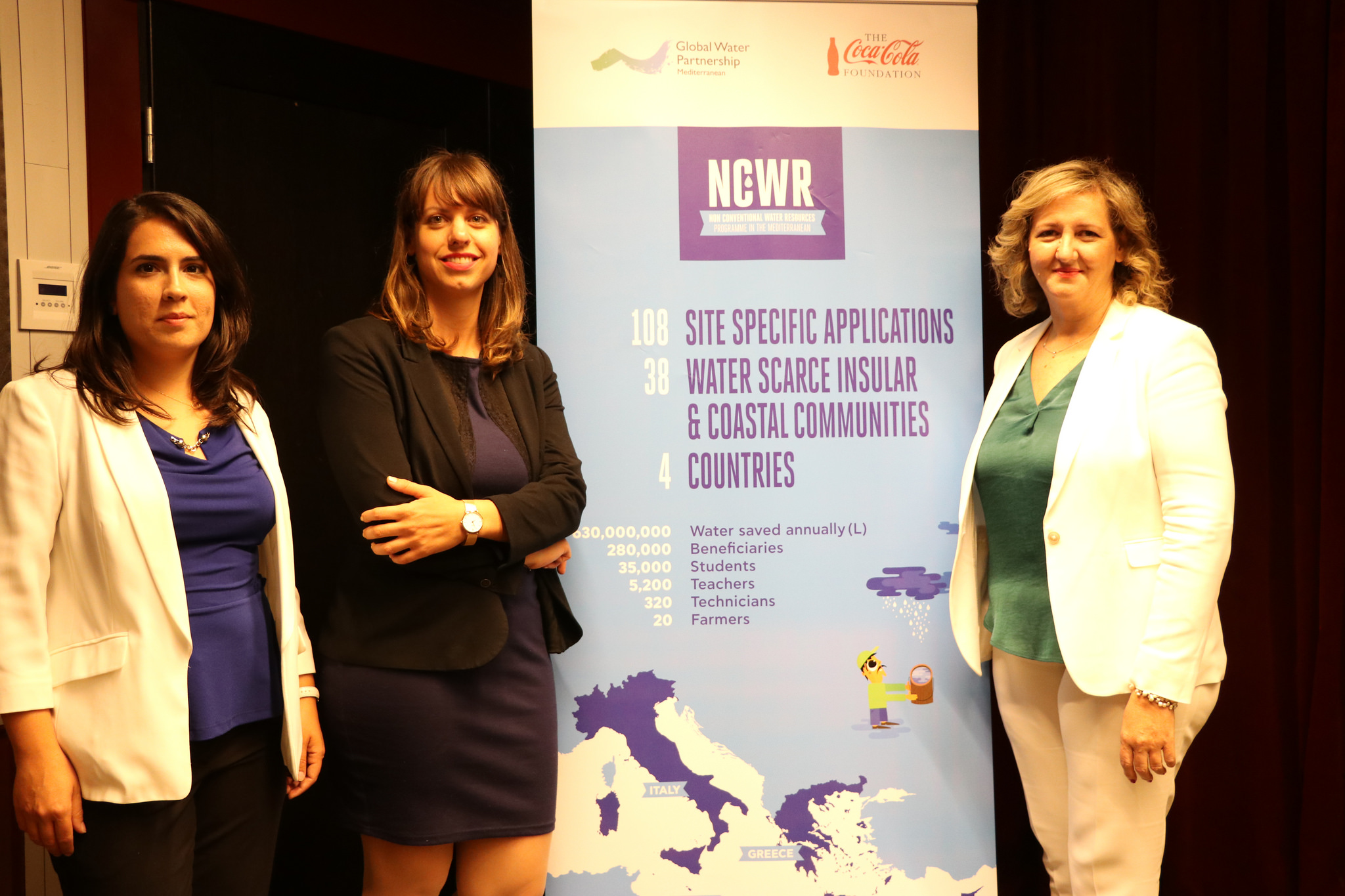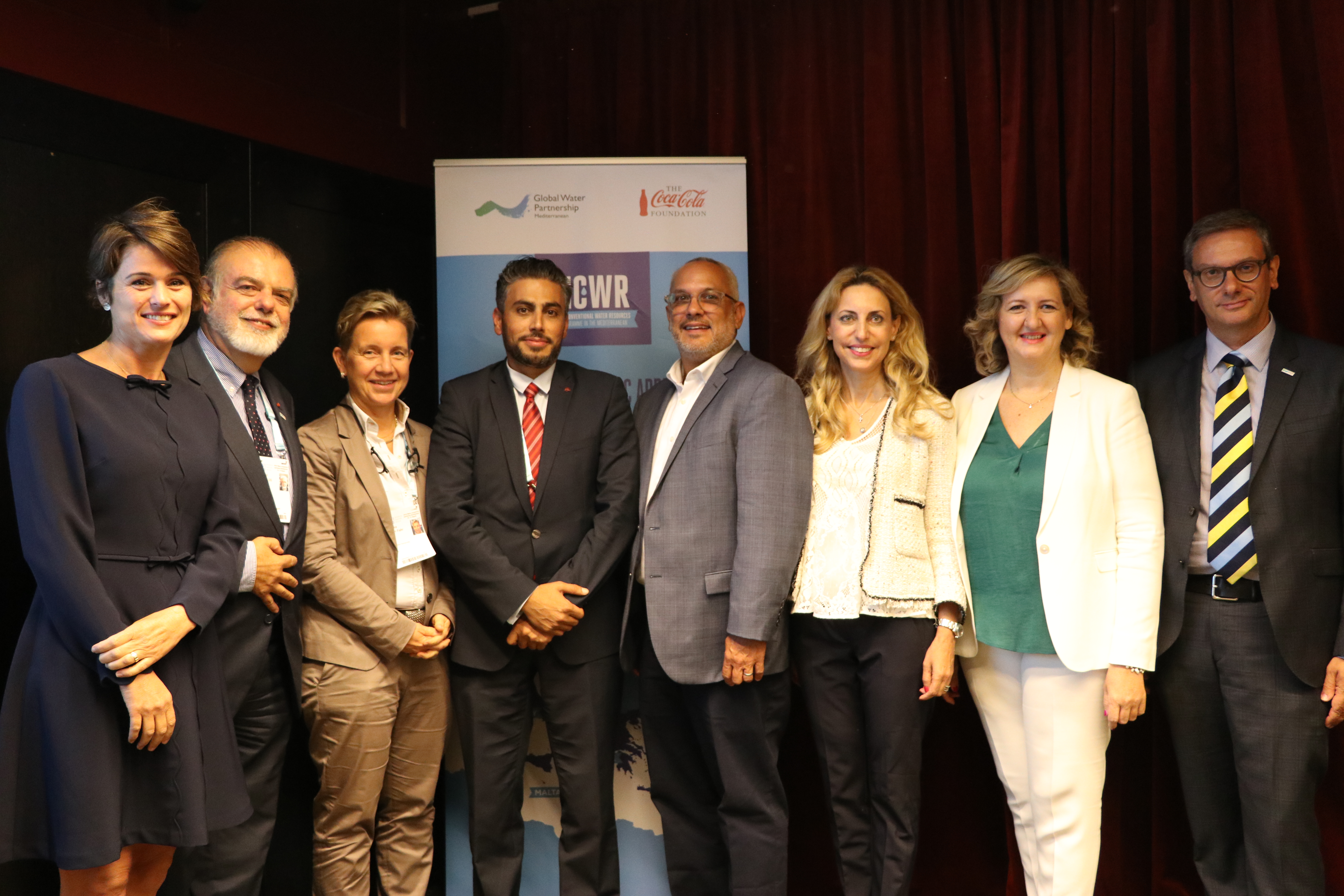The NCWR Programme was developed by Global Water Partnership-Mediterranean (GWP-Med) in partnership with the Mission Water Environmental Programme of the Coca-Cola System in Greece (Coca-Cola Hellenic and The Coca-Cola Hellas), focusing on rainwater harvesting in the Cycladic Islands. The Programme expanded to demonstrate various practices and technical solutions with a grant from The Coca-Cola Foundation in 2010, and has expanded to Cyprus, Malta, and Italy since. The highlights of its 10-year impact in the Mediterranean were presented in an anniversary publication launched during an event on the side of the World Water Week, in Stockholm on 28th August 2018.
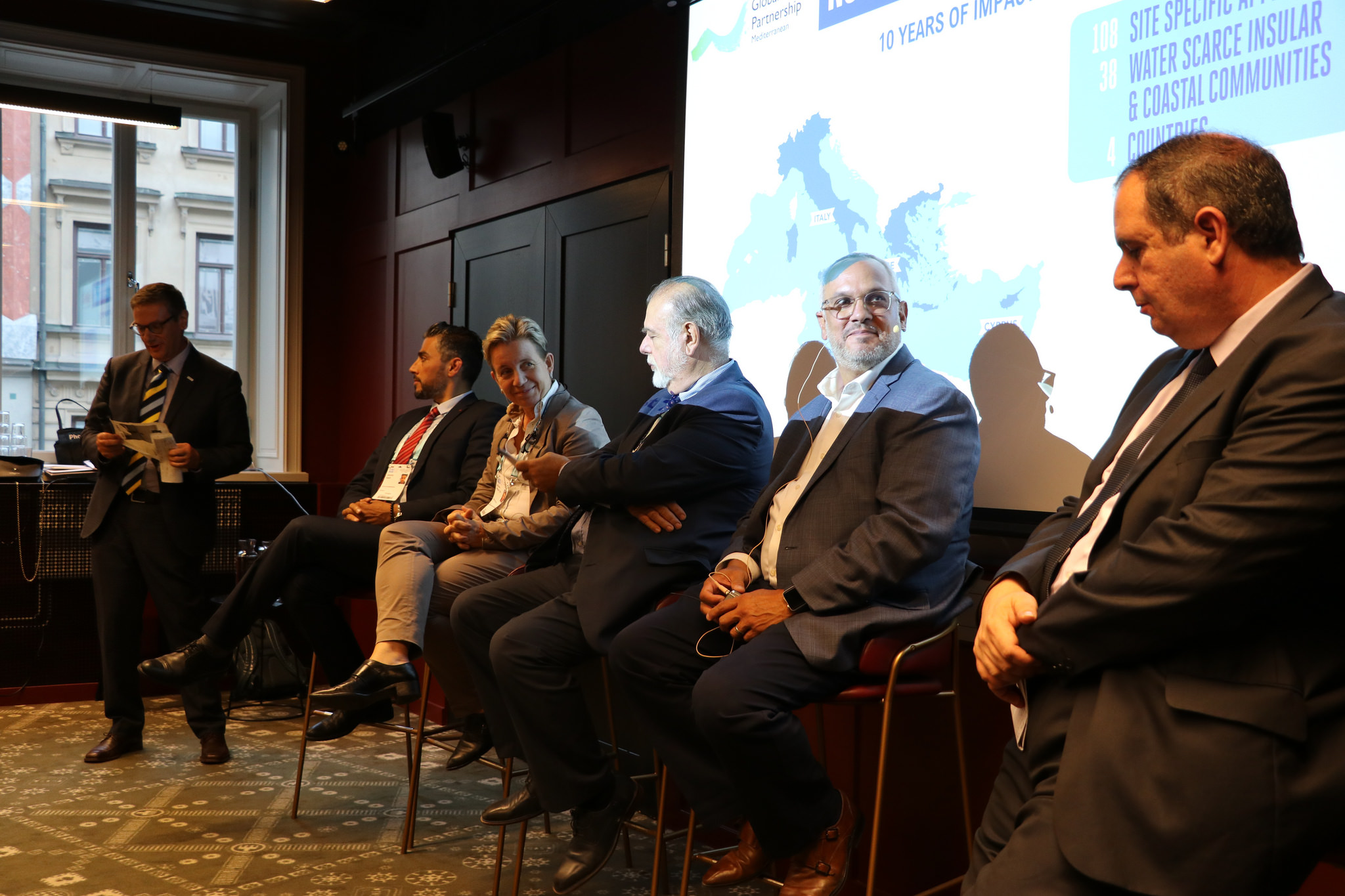
The Programme’s value lies in its holistic approach. While it demonstrates various practices and technologies through the technical interventions, it builds the capacities of the generation in lead to improve water management. It enables not only the operation and maintenance of its applications but also the replication and upscaling of these by developing technical know-how at the local level. It also develops the capacity of local authorities to manage their water resources more sustainably and address water scarcity challenges by augmenting their water budget with NCWR.
By its 10th year, the NCWR Programme implemented 108 site-specific applications in 38 water-challenged communities across the 4 countries and demonstrated how non conventional water resources can be utilised to bridge the water deficit and contribute to climate change adaptation, both through the revival of traditional practices and the application of innovative solutions. The Programme also focused on improving water efficiency by optimising water supply networks, minimising leakages and advancing irrigation and productivity in farming via ICT based solutions. Moreover, it showcased integrated solutions to increase urban resilience and green. In total, the Programme works impacted the lives of 280,000 beneficiaries and set the ground for saving over 630,000,00 litres of water annually.
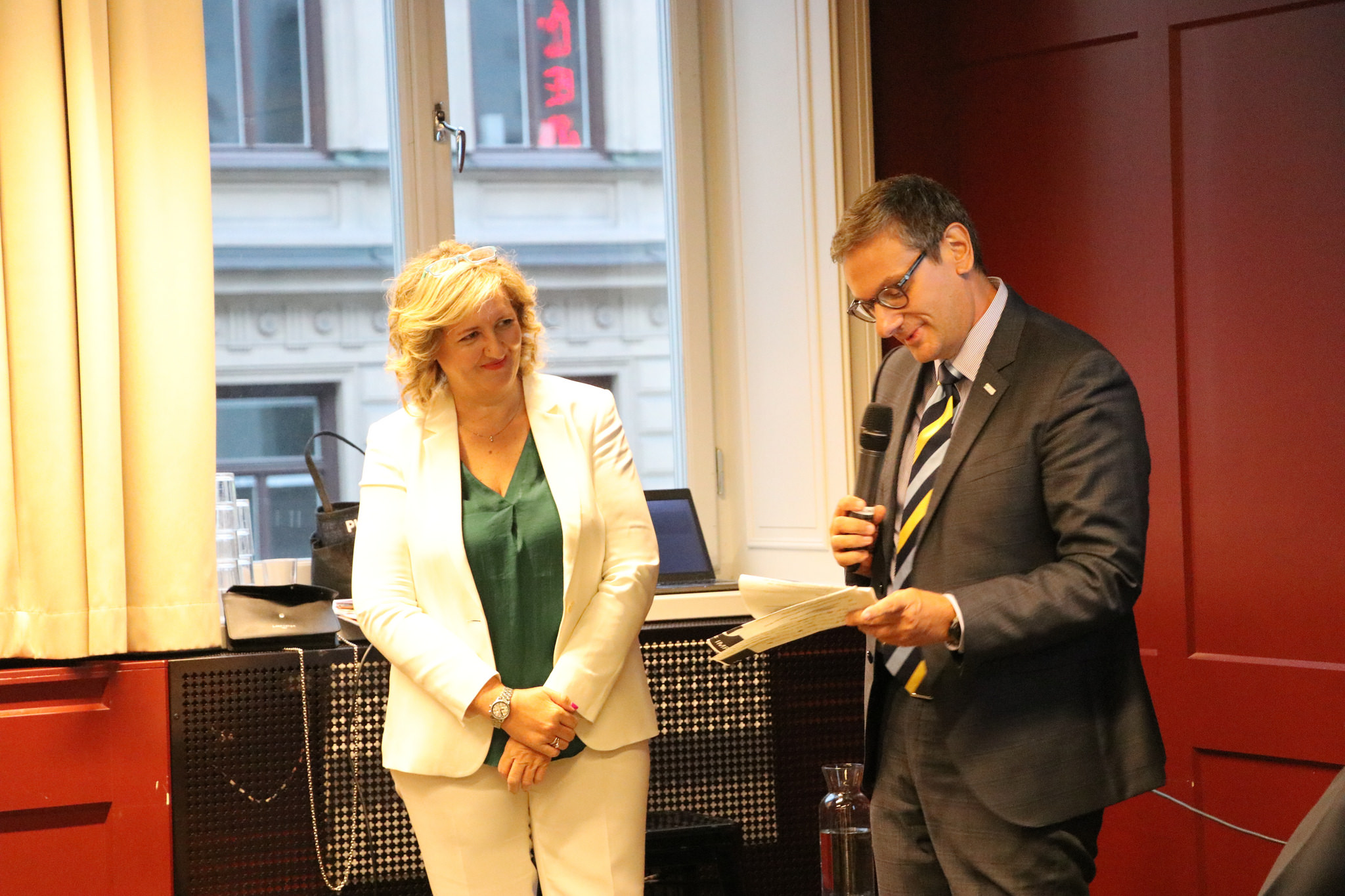
Educational, awareness raising and training activities were integral components of the Programme’s success. Environmental education empowers learners to adopt a mindful attitude towards the water; awareness raising of NCWR solutions increases their acceptance and leverages their use locally, and training local technicians facilitates knowledge sharing, spreads new skills and increases employability in the water sector. The educational seminars reached 35,000 students and 5,200 teachers, 100,000 people were exposed to water-saving tips, and over 300 technicians and farmers were trained on the latest water technology.
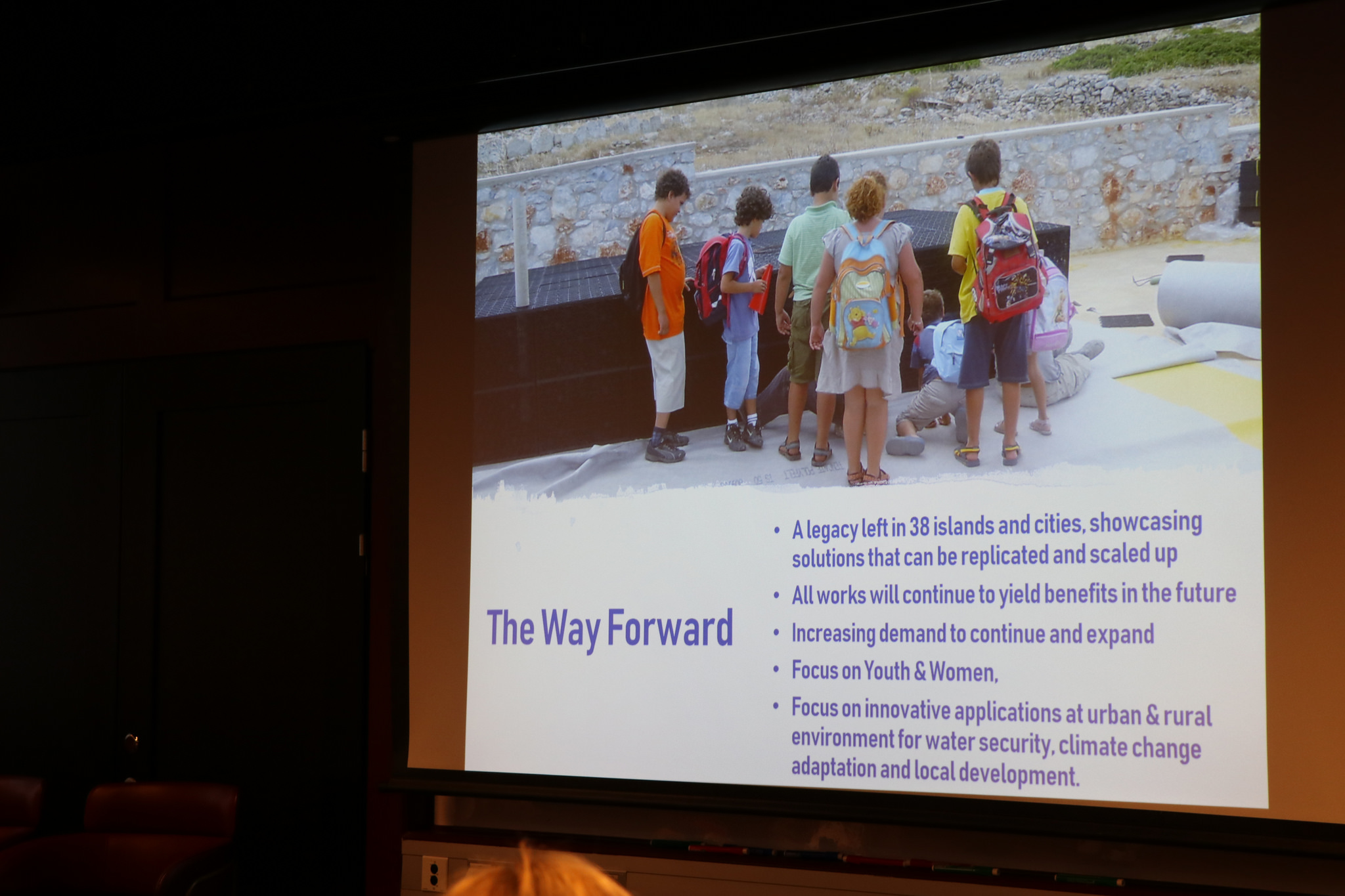
The heart of the Programme is the multi-stakeholder partnerships. GWP-Med, a regional water organisation partners with local authorities in the designated locations to identify and prioritise areas of intervention, and then support action implementation with private sector funding, namely from the Coca-Cola Company. The engagement of local authorities ensures continuity and maintenance of the works, while the private sector’s role as a sustainability enabler is acknowledged. The tripartite partnership between the public-private-civil society sectors proved its potential and led to the creation of a new water sustainability paradigm for the Mediterranean and beyond.
For the new decade, the NCWR Programme aspires to capitalise on its legacy and expand to address emerging challenges. While NCWR interventions applied so far will continue being in the focus using their technology updates in insular communities, the NCWR Programme will strive to expand further into urban areas, utilise new innovative techniques with potential of wide application, empowering youth and creating employment opportunities in a gender-balanced approach, raising awareness, educating, and assisting local NCWR planning, linked with the overall local development strategies.
